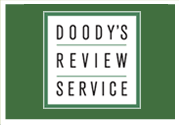|
|
|
eBook/Digital Version available from:
|
 Score: 90
Score: 90 |
 |
| Textbook of Hospital Psychiatry, 2nd Edition |
 |
ISBN: 978-1-61537-345-1,
659 pages,
Hard Cover
ISBN-10: 1-61537-345-4 |
 |
| Copyright: |
2023 |
 |
| Edition: |
2nd |
 |
| Editor: |
Trivedi, Harsh K., MD, MBA; Sharfstein, Steven S., MD, MPA |
 |
|
Specialties:
|
Psychiatry |
 |
| Publisher: |
American Psychiatric Association Publishing |
|
800 Maine Avenue, S.W. |
|
Suite 900 |
|
Washington, DC 20024 |
|
UNITED STATES |
|
P: 800-368-5777
F: appi@psych.org |
|
http://www.appi.org |
 |
| List Price: |
$155.00 |
 |
| Google: |
|
|
 |
|
|
|
|
At A Glance
|
The field of hospital psychiatry has faced unimaginable challenges and opportunities during the last decade. Even as we continue to fight COVID-19, the century's greatest public health crisis, the need for behavioral health treatments continues to increase. Providers and policymakers agree that integrating behavioral treatments into regular courses of patient care helps address post discharge needs, including safe housing, reliable transportation, and nutrition. Behavioral wellness is currently benefiting from increased public attention, but disparities in access continue to plague people of color and members of the LGTBQIA+ community, who often struggle to find culturally competent treatment. There is a significant need for dedicated psychiatric hospitals and dedicated units in general hospitals to meet America's mental health needs. Learn more and order here.
|
|
Reviewer:
|
Michael Easton,
MD
(Rush University Medical Center)
|
 |
|
Range
|
Question
|
Score
|
| 1-10 |
Are the author's objectives met? |
8 |
| 1-10 |
Rate the worthiness of those objectives. |
10 |
| 1-5 |
Is this written at an appropriate level? |
5 |
| 1-5 |
Is there significant duplication? (1=significant, 5=insignificant) |
5 |
| 1-5 |
Are there significant omissions? (1=significant, 5=insignificant) |
4 |
| 1-5 |
Rate the authority of the authors. |
5 |
| 1-5 |
Are there sufficient illustrations? |
N/A |
| 1-5 |
Rate the pedagogic value of the illustrations. |
N/A |
| 1-5 |
Rate the print quality of the illustrations. |
N/A |
| 1-5 |
Are there sufficient references? |
5 |
| 1-5 |
Rate the currency of the references. |
4 |
| 1-5 |
Rate the pertinence of the references. |
5 |
| 1-5 |
Rate the helpfulness of the index. |
3 |
| 1-5 |
If important in this specialty, rate the physical appearance of the book |
N/A |
| 1-10 |
Is this a worthwhile contribution to the field? |
8 |
| 1-10 |
If this is a 2nd or later edition, is this new edition needed? |
10 |
|
 |
|
Reviewer:
|
Michael Easton,
MD
(Rush University Medical Center)
|
 |
|
Description
|
| This book explores a wide range of topics in hospital psychiatry beyond treatment, such as staffing, program structure, administration, federal and local financing, collaborative care, and many other areas. This second edition has been updated to reflect the many changes that have occurred since its original publication in 2009. |
 |
|
Purpose
|
| The purpose of this book is to advance the practice of hospital psychiatry. It aims to provide valuable knowledge to help drive growth and development of programs at various institutions. The book provides a roadmap to advance care and advocate for funding to implement excellence in every community. |
 |
|
Audience
|
| This book is written for individuals involved in implementing, developing, and funding hospital programs. It is applicable to a wide range of individuals, including those running programs, developing comprehensive and multiple levels of hospital services, and monitoring outcomes, as well as those involved in advocating/obtaining funding and policy making. |
 |
|
Features
|
| This book consists of 30 chapters divided into five parts. The first chapter presents the history of hospital psychiatry. Part I explores issues around inpatient care in different age groups (child, adolescent, adult, geriatric) and different conditions (neuropsychiatric, eating disorders, forensics, psychotic, and substance abuse disorders), as well as specific issues applicable to state and veterans' hospitals. Part II covers the expansion of hospital-based outpatient services for community mental health, residential programs, and emergency services. Part III discusses issues and challenges related to operational issues, administration, and leadership. Part IV examines issues involving various levels of care providers in the workforce. The final part addresses the future of psychiatry and emerging models. |
 |
|
Assessment
|
| This is a comprehensive book devoted to the various facets involved in developing and managing a comprehensive, hospital-based psychiatric program with multiple levels of care. Due to financing, staffing, and healthcare reimbursement issues, most community programs face difficulties in achieving their goals. This book provides a detailed roadmap of the necessary tools to develop exceptional standards of care and the challenges that need to be faced. |
 |
|
|
|
|
|
|
|
